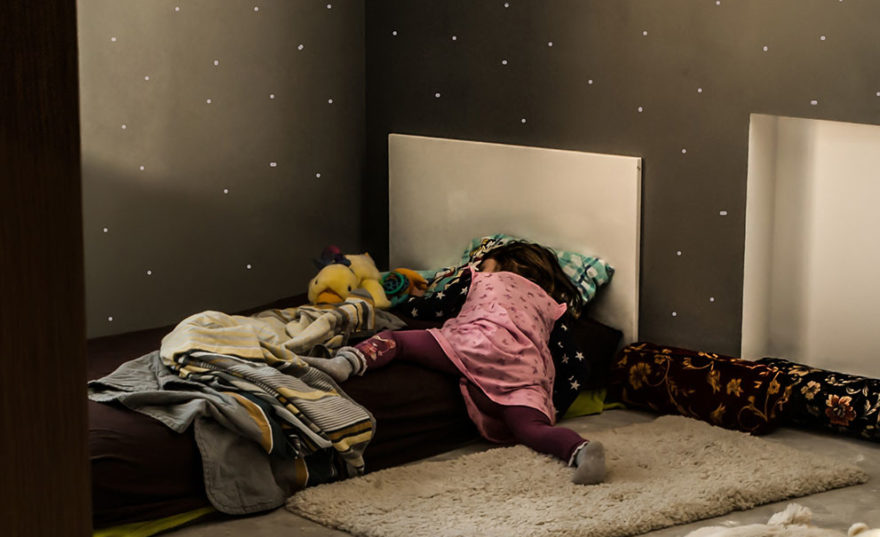The bidirectional links between sleep problems and psychopathology in children have been well-reviewed,1 but few investigations have been performed in young samples and those with early-onset psychopathology. Researchers at Washington University have now examined three specific, but commonly observed aspects of sleep behaviours in preschool children (aged 3-6 years): (1) prolonger sleep onset latency (SOL), (2) refusal to sleep alone, and (3) night-time awakenings.
The prospective, longitudinal study used data from 292 preschoolers with or at risk of depression, enrolled in the Preschool Depression Study.2 Here, the researchers assessed whether any of the three sleep problems could predict anxiety or depression across the next 6 years of childhood via parent-report of psychiatric symptoms and sleep problems using the Preschool-Age Psychiatric Assessment.
They found that parent-reported prolonged SOL and refusal to sleep alone were significant, independent predictors of major depressive disorder and anxiety severity, but not of attention deficit hyperactivity disorder severity over time. These sleep difficulties predicted depression and severity of anxiety even after controlling for family income-to-needs ratio and maternal internalising psychopathology.
Finally, the researchers showed that parent-reported prolonger SOL and refusal to sleep alone also predicted anxiety severity in a separate cohort of 81 healthy preschoolers. As sleep problems are relatively common in young children, the researchers suggest a need to distinguish between developmental norms and early markers of psychopathology to decrease the likelihood that severe depression and anxiety symptoms continue over time.
Study Implications
Clinical practice:
Refusal to sleep alone and/or sleep onset latency should be treated early in development, as they may contribute to the continuation of depressive and anxiety symptoms later in childhood. Identifying treatable precursors to the surge in depression rates during adolescence may curb this increase and associated negative outcomes. Clinicians may need to more carefully screen and assess for sleep disturbances during preschool.
Schools/educational practice:
Enhanced parental education about sleep benefits, healthy sleep routines and overall sleep hygiene may help prevent the continuation of sleep problems from preschool into school age and decrease the impact that these sleep problems may have on emotion functioning.
Recommendations for further science:
The researchers consider that determining how sleep onset latency and refusal to sleep alone bi-directionally influence depressive symptoms in preschool-aged to school-aged children is warranted.
Sleep variables may be influenced by parental attitudes and anxiety around bedtime. The researchers recommend future studies that incorporate measures of parental bedtime anxiety as potential mediators of the relations between preschool sleep and school-age depressive severity.
Whalen, D. J., Gilbert, K.E., Barch, D.M., Luby, J.L. & Belden, A.C. (2017) Variation in common preschool sleep problems as an early predictor for depression and anxiety symptom severity across time. J Child Psychol Psychiatr. 58: 151-159. doi:10.1111/jcpp.12639.
Further reading:
1Gregory, A.M. et al. (2015), Annual Research Review: Sleep problems in childhood psychiatric disorders – a review of the latest science. J Child Psychol. Psychiatr. 57: 297-313. doi:10.1111/jcpp.12469.
2Luby, J.L. et al. (2009), The clinical significance of preschool depression: Impairment in functioning and clinical markers of the disorder. J Affect. Disord. 112:111-119. doi:10.1016/j.jad.2008.03.026.
Glossary
Sleep onset latency: the amount of time it takes to transition from full wakefulness to sleep.
Internalising psychopathology: a spectrum of conditions characterised by negative emotions and includes anxiety, phobias and depressive disorders and their related symptoms and behaviours.

